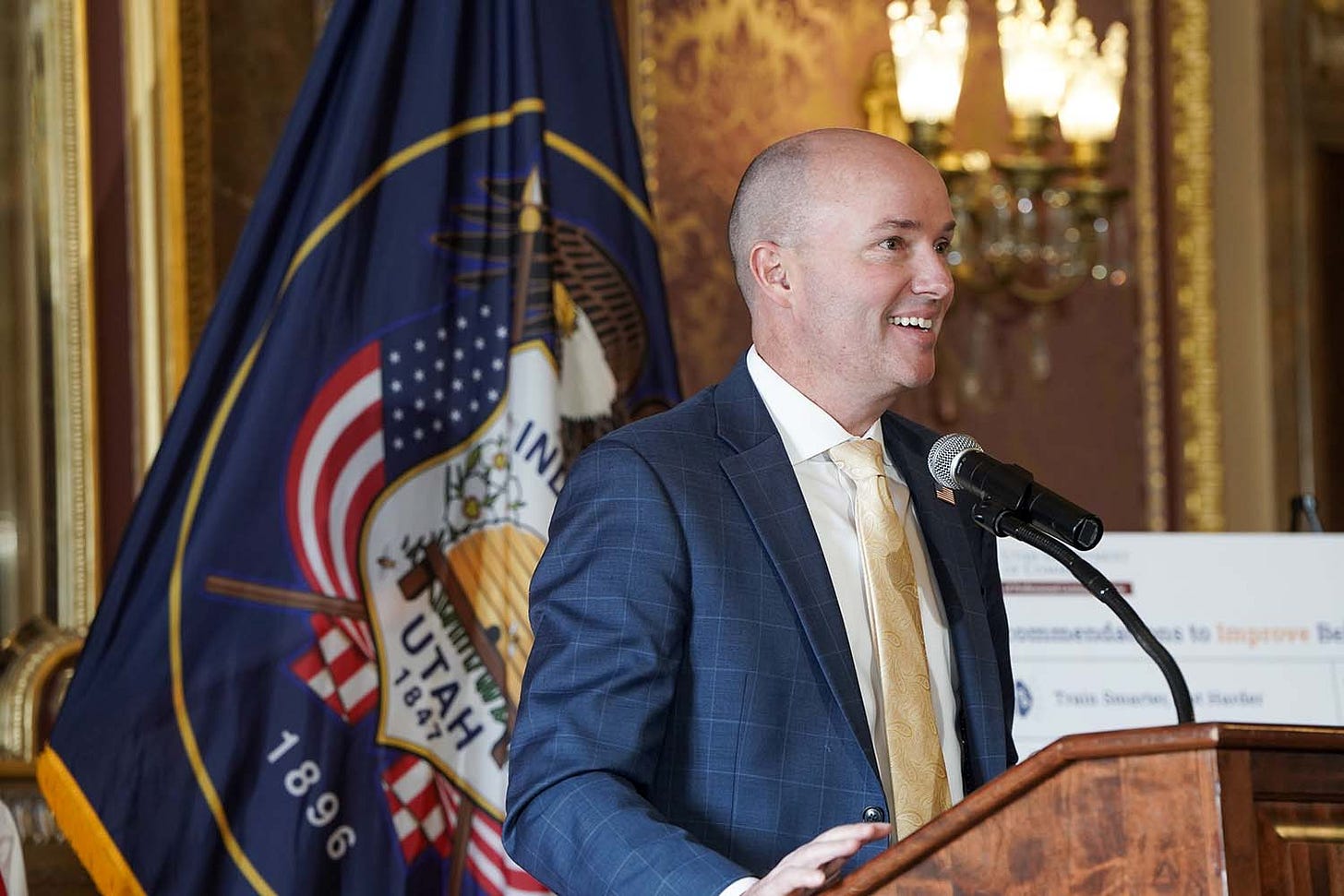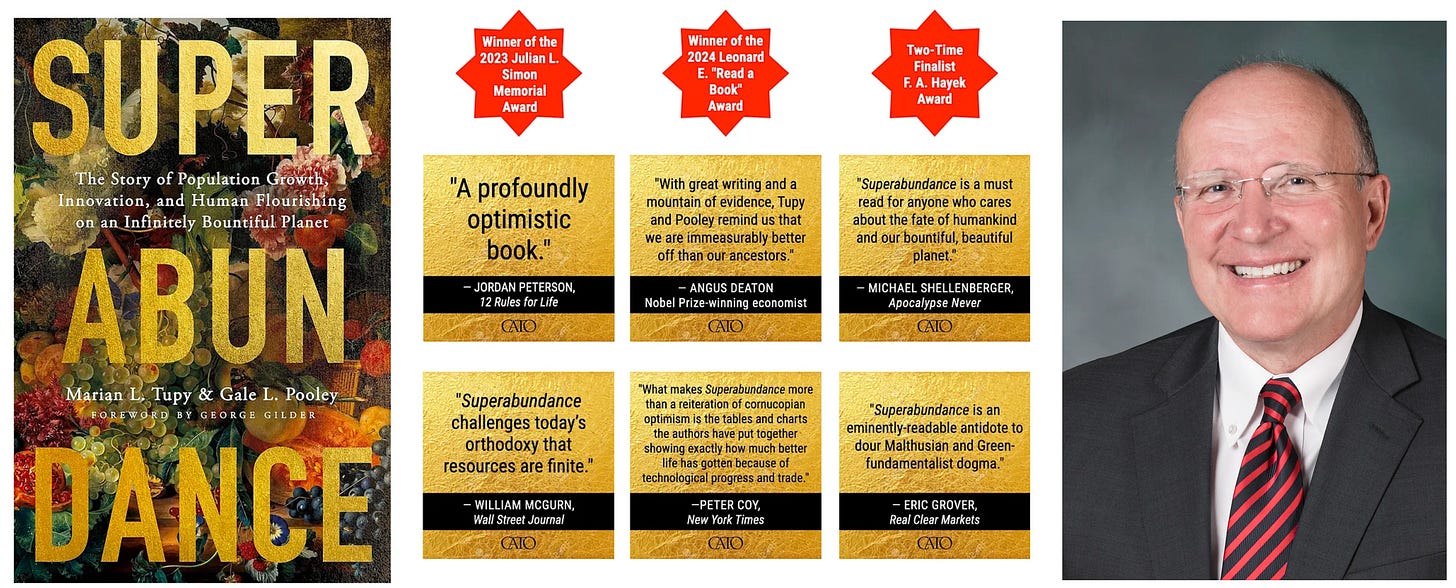Utah Governor Spencer Cox Likes Superabundance
Cox spoke about Utah’s success on Thursday at the Crossroads of the World International Trade Summit.
Cox started his remarks by praising the book “Superabundance,” written by Utah Tech University professor Gale Pooley. The book counters the idea popularized by Paul Ehrlich in the 1960s that the world’s growing population would be a strain on resources, leading to widespread famine and human suffering.
“The thing is that the greatest resource we have are our people, human beings,” Cox said. “You see all of those minerals, all of those commodities, all of those important things are just atoms. They’re basically worthless. They don’t mean anything until you put human knowledge and ingenuity behind them.”
Read more here: https://www.deseret.com/politics/2025/05/08/utah-punches-above-weight-on-exports-imports/
Learn more about our infinitely bountiful planet at superabundance.com. We explain and give hundreds of examples why more people with freedom means much more resource abundances for everyone in our book, Superabundance, available at Amazon.
Gale Pooley is a Senior Fellow at the Discovery Institute, an Adjunct Scholar at the Cato Institute, and a board member at Human Progress.






Gale Pooley, I read much of your book superabundance and I agree with the idea that resources get cheaper and more abundant (as opposed to scarcer) with more people. So from a resource perspective, I agree with you. But the bigger question I am wondering is would a lot of overcrowding be worth it just because everything was cheaper. A lot of people still want personal space and if the population never quit growing it seems areas would get quite congested.
I know you believe that resources are infinitely abundant, but do you believe that living space is infinitely abundant? I don't believe that living space on earth is infinitely abundant. I do however lean toward thinking that the universe is infinitely abundant when it comes to living space.